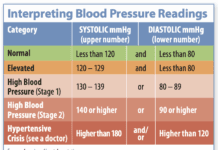A collection of controversial research reviews on consumption of red meat and processed meat published recently in the Annals of Internal Medicine seemingly overturns years of public health guidelines and recommendations from a range of experts and organizations. It was met with resounding criticism from many nutrition experts. A close look at the findings can help you make informed choices for your own health.
The Controversy: The reviews, conducted by an independent group of scientists, concluded that adults should continue unprocessed red meat and processed meat consumption at current levels. The research (composed of three separate meta-analyses and two narrative reviews of existing studies on red meat and processed meat consumption) quickly led to media headlines with statements like, “meat is back!”
This conclusion is highly controversial because prior meta-analyses of long-term observational studies have consistently found that intake of processed meats (like bacon, sausage, hot dogs, ham, jerky, and deli meats) is linked to higher risk of colorectal cancer, stroke, heart disease, and type 2 diabetes. In these earlier studies, unprocessed red meats (beef, pork, and lamb) were not linked to any evidence for benefits, but were generally linked to less robust or consistent evidence of harms than processed meats, except for higher risk of type 2 diabetes at higher levels of intake. In 2015 the World Health Organization International Agency for Research on Cancer concluded that processed meat is carcinogenic to humans and that consumption of red meat is “probably” carcinogenic to humans. Similarly, the World Cancer Research Fund/American Institute for Cancer Research systematically reviewed the evidence and recommend limiting red meat consumption to moderate amounts and consuming very little processed meat.

Image © U. J. Alexander | Getty Images
What Did These New Reviews Find?
The researchers behind the new papers identified statistically significant positive associations, after adjustment for other factors, between processed meat consumption and all-cause deaths, colorectal cancer, prostate cancer, breast cancer, esophageal cancer, stroke, heart attacks, and diabetes. For example, for each daily serving of processed meats, people experienced 18 percent higher risk of colorectal cancer and 79 percent higher risk of diabetes. Unprocessed meat consumption in these new reviews was associated with higher risk of total cancer death, total cardiovascular death, diabetes, and (in fewer studies) stroke. “This new research actually shows similar harms from consuming red—and especially processed—meats as prior studies,” says Dariush Mozaffarian, MD, DrPH, dean of the Friedman School of Nutrition Science and Policy and editor-in-chief of the Tufts Health & Nutrition Letter, “but these authors chose to downplay these findings.”
Unusual Methods and Decisions: Three unusual decisions caused the authors to dismiss their own evidence and recommend that people continue to eat meat.
1. The authors chose to grade the evidence of identified harms as ‘low quality.’ They selected a system to rate the strength of the evidence (called GRADE) that was mainly developed for evaluating clinical interventions like drug trials. “The GRADE system is not the right framework for judging evidence on many of the things we care most about, like health effects of smoking, exercise, obesity, air pollution, lead paint, or nutrition,” says Mozaffarian. “To judge these types of population effects, many other established evidence grading systems have been developed and refined over the years.”
2. The authors took the unprecedented step of publishing their own separate dietary ‘guidelines’ based on their research. Dietary guidelines are usually prepared by a group of nutrition scientists representing a wide range of domain expertise and convened by a major health advocacy organization or the federal government. This panel was self-selected by the researchers; only two of the 14 panelists were listed as “nutritional scientists;” and three of the 14 members voted against the guidelines. (The dissenting members believed that the evidence was too weak to recommend changing current guidance.) “This paper on new ‘dietary guidelines,’ by a self-selected panel with no links to any established national or international organization, increased public confusion and lent undeserved credibility to their conclusions,” says Mozaffarian.
A stated aim of the researchers that prepared this new paper is “to produce trustworthy nutritional guideline recommendations based on the values, attitudes and preferences of patients and community members.” Unlike other scientific recommendations, the authors factored in personal preference and willingness to change. “It is very unusual to develop dietary guidelines based on attitudes and preferences, rather than the scientific evidence,” says Alice H. Lichtenstein, DSc, director of the Cardiovascular Nutrition Lab at the Jean Mayer USDA Human Nutrition Research Center on Aging and executive editor of Tufts Health & Nutrition Letter. “People deserve to know what the predominance of scientific evidence actually demonstrates so they can decide for themselves if they want to change their dietary behaviors.”
3. The authors confused low-certainty of evidence for harm with proof of no harm. The researchers identified potential harms of meat consumption, but dismissed this evidence as having low or very low level of certainty. In cases like this, it could be reasonable to conclude that harms are suggested but more research is needed. Yet, the panel instead recommended that people continue current unprocessed red meat and processed meat consumption. “This is a scientific no-no,” says Mozaffarian. “Failure to prove harm in science does not prove that no harm exists. Even if they dismissed their own findings for harm as weak, at best no recommendations at all should have been made.”
Other criticisms have also been raised with the new research. For example, the conclusions of one of the five reviews was based on a single study that was not designed to test the relationship between consumption of red and processed meats and cardiovascular health and was rated as weak. “Basing a recommendation on a single study not designed to test the hypothesis is a very low bar,” says Lichtenstein. “It would have been more appropriate to state that on the basis of their review there was insufficient evidence to come to a conclusion about a relationship between red and processed meats and cardiovascular health.”
“These studies ignore their own criteria for inclusion of relevant research into their analyses, ignore usual methods for testing hypotheses about nutrition and health, and ignore the totality of evidence available on meat consumption generated by multiple avenues of research,” says Jeffrey B. Blumberg, PhD, professor at the Friedman School. Frank Sacks, MD, a professor of cardiovascular disease prevention at Harvard and past chair of the American Heart Association’s nutrition committee, called the research “fatally flawed.”
Balanced Recommendations: Mozaffarian wonders whether these new papers are in some way a reaction to trends in recent years to simplify the evidence for health harms of meat consumption. “‘Plant-based’ has become one new vogue for defining a healthy diet. In reality, both ‘plant-based’ and ‘animal-based’ foods represent diverse items that can be healthy, neutral, or harmful,” says Mozaffarian. [See April 2019, ‘Plant-Based’ and Unhealthy?] “For health, many ‘plant-based’ foods are harmful (French fries, soda, sugary cereals, processed energy bars, candy, white bread, white rice, crackers, etc.), while animal foods like poultry, eggs, and milk are largely neutral in terms of overall health impact; fish and yogurt are beneficial; cheese may be modestly beneficial; while unprocessed red meats at higher intakes and especially processed meats are clearly harmful. Yet, several recent reports and guidelines have put major emphasis on reducing meat consumption and shifting to ‘plant-based’ diets for health. It’s important for scientists, public health experts, and advocates to embrace the true nuances related to diet, including complexities related to ‘animal-based’ and ‘plant-based’ foods and health.”
The upshot: For those who choose to eat meat, unprocessed red meat should be eaten in moderation, while processed meat should be minimized. To reduce cancer risk, the American Institute for Cancer Research recommends eating no more than three servings per week (12 to 18 ounces total, cooked weight) of red meats like beef, pork, and lamb and avoiding processed meats such as ham, bacon, salami, hot dogs, and sausages.
Any time you see a lone new review that seems to contradict all prior research and well-established health advice, take it with a grain of salt. “Drawing strong conclusions from surprising results that are in contrast to all past findings is inappropriate, especially when these conclusions are attached to specific recommendations that may broadly and adversely affect public health,” says Blumberg.
Take Charge!
If the new study on red and processed meat consumption has you confused, try these tips:
-Limit consumption of processed meats like hot dogs, sausage, bacon, ham, jerky, salami, pepperoni, and deli meats (including processed ham, chicken, and turkey). Don’t be fooled by ‘low-fat’ or ‘nitrate-free’—these meats are still highly processed and loaded with preservatives like sodium and nitrites (the latter often hidden as ‘celery juice’ in the ingredients list).
-If you eat red meat, limit consumption to no more than about three portions per week (up to 12 to 18 ounces, cooked, per week).
-Choose fish, poultry, beans, nuts, tofu, yogurt, and cheese more often as alternatives to red and processed meat.
-Beware of single reviews that contradict years of scientific recommendations. Keep an open mind but wait for more information.























AMEN! AMEN!
I whole-heartily agree about consuming bacon, ham, sausage and hotdogs, as our oldest son passed away at 54 years of pancreatic cancer.
God Bless his soul!
Irregardless of the impacts of meat consumption on personal health, the production of meat, especially beef is definitely not healthy for our planet nor for controlling climate change. Beef production in particular is a major user of water in the U.S. as well as a significant contributor to the warming of our atmosphere through the generation of bovine methane. And then there’s the large scale commercial feedlots from which runoff pollutes our fresh water streams and lakes. Also, beef, pork and poultry production all rely heavily on the overuse of antibiotics which can generate drug resistant super-bugs dangerous to human health. So, from many different angles, a plant based diet is superior for both the health of humanity as well as that of our planet.
When I was diagnosed with Gleason 8, locally invasive, node positive, metastatic prostate cancer 21 years ago, I was introduced to a long term survivor with a similar profile as mine. My prognosis was poor. I noticed my peer counselor using soy milk in his coffee. After our meeting, I switched to a whole food, plant based diet. I am now 72 and still surf, play singles tennis, hike and remain very active. I am extremely careful to balance my diet with fruit, vegetable, nuts, and legumes while supplementing B12. Though I have lost weight to my college level, I am strong and play sports at a high level. I know a study of one proves little, but I report my outcome to show that it can be done. I have no evidence of cancer recurrence. Also my resistant HTN, severe lipid disorder, and overall health are markedly better. I am also an MD who has constantly reviewed the medical lierature I think those with cancers negatively impacted by estrogenic hormones, severe lipid disorders, heart disease, etc., should consider a well thought out plant based option. I did not change my diet as a “fad” but because I thought along with mainstream medical interventions a plant based diet gave me the best opportunity to survive. I am also a 20 year survivor of melanoma.
Although I have taken, “to heart”, advice about curtailing my consumption of processed, and red meats, I have not excluded them from my diet. The advice is given as a hoped for measure to prevent developing cancer of one kind, or another. It has been very difficult for me to reconcile this advice when I look around at the millions of people who pay no heed, yet, live healthy lives. And, live on for many years longer than others. I applaud all the work done in the attempt to ascertain just why cancers develop, just why some people die of heart attacks while others don’t, why people succumb to frailties in spite of doing everything “right”. I don’t consume as much of any foods as was done when I was much younger. I find that I just don’t need all the calories I once did. At the age of 88 I can still lift 50 pounds, shovel snow, do yard work, as well as housework, but just not as much as was done when younger. I have not eliminated red meats from my diet, eat hot dogs, and bacon from time to time. The realities must be vastly different from the conclusions published of late. I applaud your people for doing the work they are doing to find answers. The answers have yet to be found. To me it appears that each person’s inner workings come in to play, and counter the learning your researchers, and other researchers are doing. Your dietary advice is good, just short on answers.
Prof. Hu B Frank et al. from Harvard at February 2020 published a paper in Diabetes Care with the title ”Red and Processed Meats and Health Risks: How Strong is the Evidence? His team conclusions are the same as yours.
Prof. Joseph Kanner